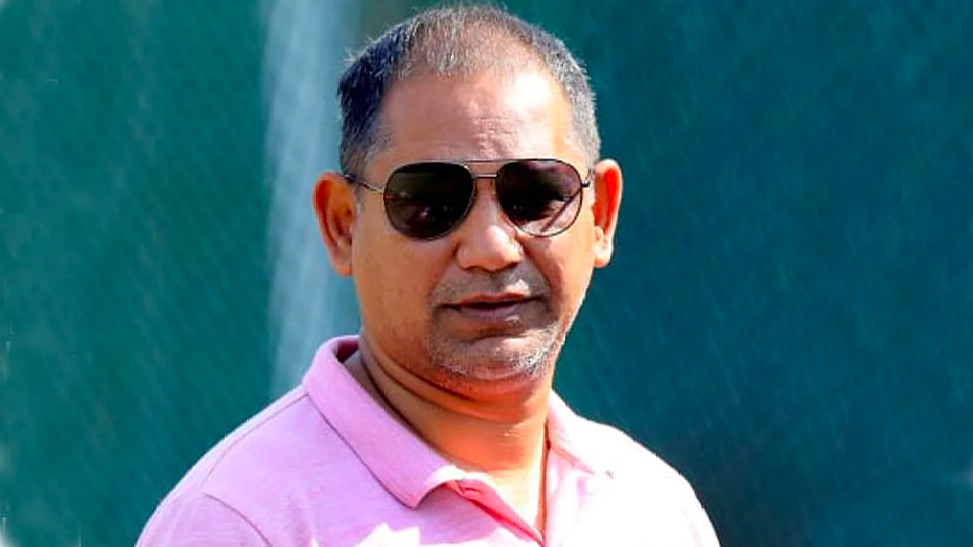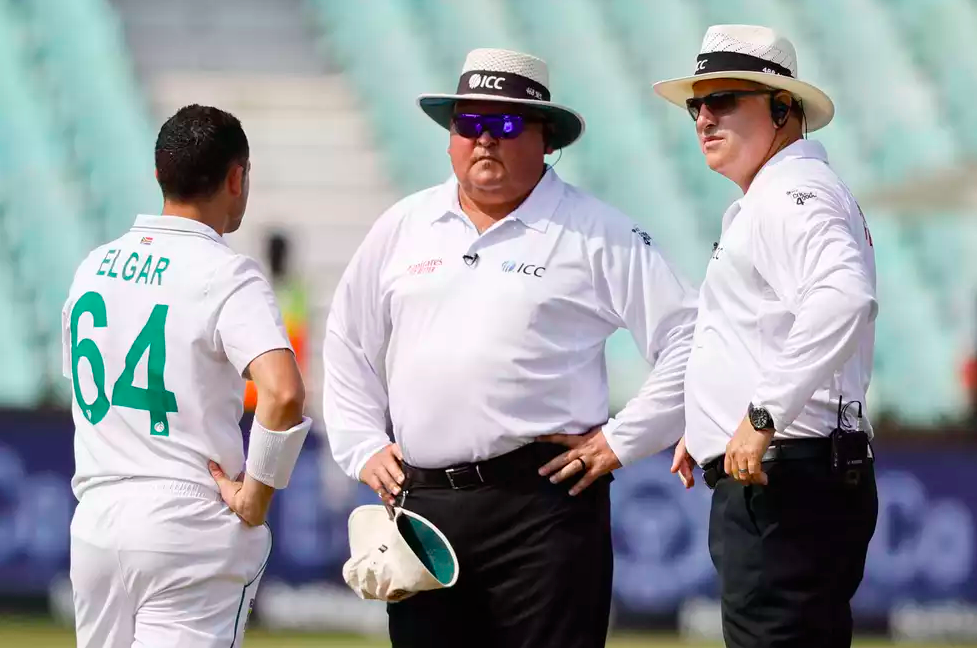The Bangladesh think-tank is in pain and angst over “inconsistent” umpiring from match officials during the first Test against South Africa in Durban. As per their team director Khaled Mahmud, the side could well have restricted the opposition to a third-innings lead of around 180, not the eventual 274, if not for some of the questionable decisions.
With Bangladesh finishing play at 11 for three in their final innings run-chase, those decisions did come back to haunt the Mominul Haque-led side. Things went rather fine for the first half of the game, but the visitors were left dismayed by the number of their LBW appeals on which the umpire stood unmoved.
A review opted against SA captain Dean Elgar would have caused the most frustration as the left-hander was given not out by umpire Marais Erasmus despite being hit on the back leg in line with the stumps. But he survived on DRS, with the technology upholding the umpire’s call even as the ball was clipping the off stump on the projected path.
In the 19th over, Elgar’s opening partner Sarel Erwee was not given despite a plumb LBW appeal from the Bangladeshis, who duly reversed the call through a timely DRS intervention. But they missed on another LBW after opting not to go upstairs when the in-form Keegan Petersen was not given out despite Hawkeye replay confirming that the ball was crashing on the stumps.

“There was no hiding from the [poor] umpiring in today’s play. A number of decisions went against us. We also missed out on a wicket when the boys seemed scared of taking a review,”
“If we got those decisions, we might be chasing 180 instead of 270. To be really honest, I have seen such inconsistency in umpiring after a long time. But the umpires are the best judge on the field. We have to accept the decisions.”
Mahmud was quoted as saying by ESPNcricinfo.
Seeing the number of decisions not going in favour of Bangladesh, their world-renowned allround cricketer Shakib Al Hasan took to Twitter and urged the ICC to back to neutral umpires, indirectly questioning whether there has been a sense of bias involved in the working of Erasmus and his partner Adrian Holdstock.
The ICC had reverted to home-based umpires for pandemic times in an interim measure back in mid-2020 to avoid air travelling of officials and therefore limit potential viral breaches inside the biosecure bubbles in place for matches.
The criticism of umpiring within the Bangladesh set-up wasn’t limited to Mahmud and Shakib after former skipper Habibul Bashar joined in the bandwagon and said he agreed with Shakib’s remarks to go back to neutral umpires.

He said it’s not a matter of questioning the ethics and fairness of the umpires involved, but the number of umpire’s calls that have not gone in Bangladesh’s favour do raise eyebrows.
“I totally agree with Shakib. Since Covid protocols are all but over, we should go back to neutral umpires. Umpires make mistakes but definitely neutral umpires ensure everyone gets the advantage.
We have seen that on and off in this series. The DRS is certainly helpful but the umpire’s call isn’t really going in our favour,”
“When you have a neutral umpire in the middle, even if he makes a mistake, you don’t think it is deliberate. We have seen many decisions in this series which could have gone our way, but didn’t.”
Bashar said.
Eyeing their maiden Test win on South African soil, Bangladesh are now left needing another 263 runs with their last seven wickets intact for the final day’s play on April 4.


